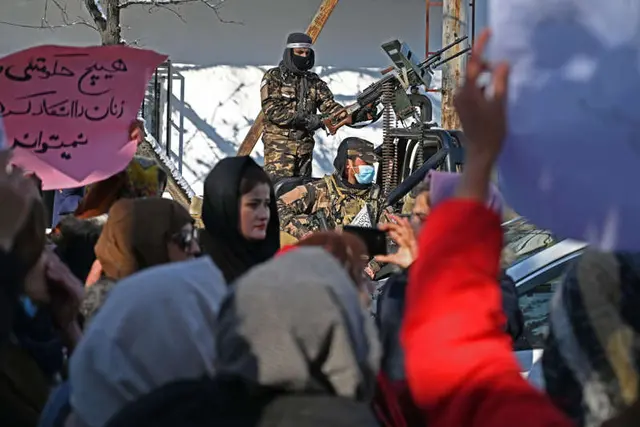The Taliban dissolved two election commissions in Afghanistan on Sunday, prompting condemnation from former Afghan officials.
Bilal Karimi, deputy spokesperson for Afghanistan's Taliban-run government, announced the disbandment of the Independent Election Commission (IEC) and Electoral Commission on Sunday, the Associated Press reported.
He said the commissions were "unnecessary institutes for the current situation in Afghanistan," adding that the Taliban could revive them if there is a need to.
Officials implemented the two commissions to help administer and supervise presidential, parliamentary and provincial council elections.
The decision will have "huge consequences," former IEC chair Aurangzeb told Agence France-Presse. (Like many Afghans, he goes by one name only.)
"If this structure does not exist, I'm 100 percent sure that Afghanistan's problems will never be solved as there won't be any elections," he told the news agency.
Halm Fidai, who served as the governor of four Afghan provinces, told AFP the decision shows the Taliban "do not believe in democracy."
"They are against all democratic institutions. They get power through bullets and not ballots," Fidai said.
Also on Sunday, Karimi announced the closure of the state ministries for peace and parliamentary affairs—calling them unnecessary as well within the current structure of the Afghan government, the AP reported.
The announcement comes as the international community remains skeptical of the Taliban-run government. The group's return to power in August sparked concerns about the nation returning to the brutal rule of the Taliban's first reign.
In the years between Taliban rule in Afghanistan, the nation made many advancements, including in women's rights. Under the Taliban, women were barred from public life and receiving an education.
Since seizing power, the Taliban have made other decisions that furthered concerns about human rights in the nation.
In September—only weeks after coming to power—the Taliban disbanded the former Women's Affairs Ministry, replacing it with a ministry for the "propagation of virtue and prevention of vice." Many international observers viewed the decision as a signal that the Taliban would again restrict women's rights.
Mabouba Suraj, who heads the Afghan Women's Network, said she was astounded by the decision.
"It is becoming really, really troublesome...Is this the stage where the girls are going to be forgotten?" she told the AP in September. "I know they don't believe in giving explanations, but explanations are very important."
There have also been reports of retaliation. Taliban fighters reportedly kidnapped and killed more than 100 former police and intelligence officers since taking power, according to a November Human Rights Watch report.
(NEWSWEEK)
 简体中文
简体中文

